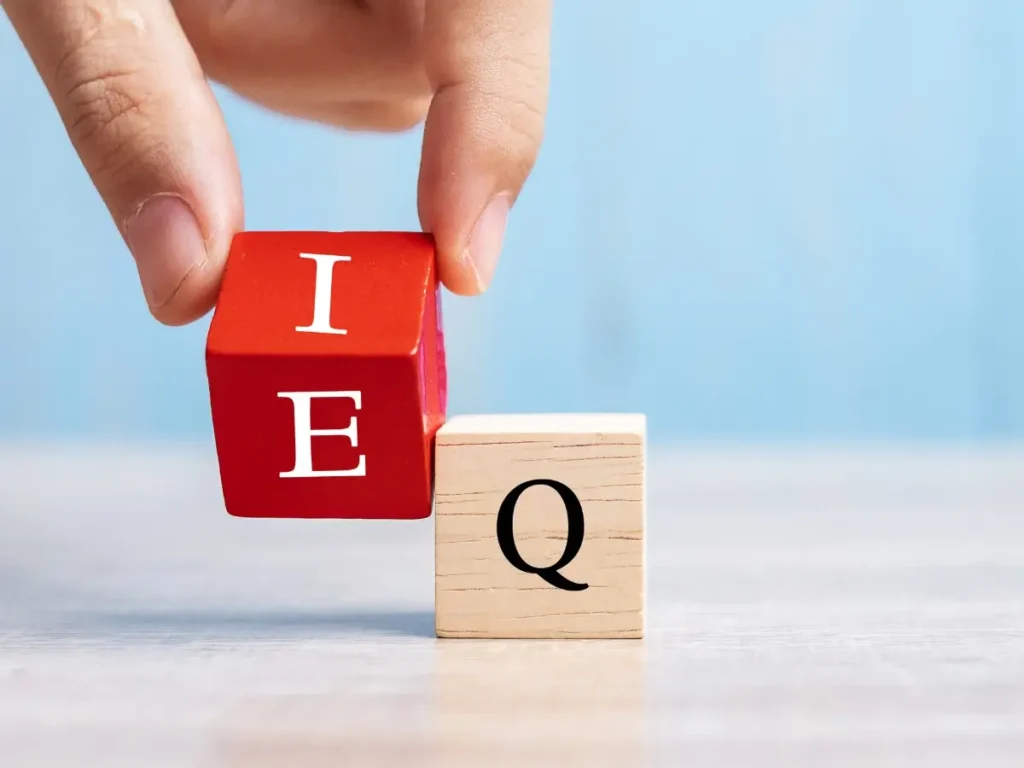Understanding emotional intelligence is the secret people who stay calm in chaos don’t want you to know. You’ll walk away knowing exactly what emotional intelligence is and how it changes everything from office drama to family fights.
Understanding Emotional Intelligence: What It Really Means
Emotional intelligence is your skill in recognizing, understanding, and handling emotions both your own and those of others. In simple terms? It’s being the person who doesn’t explode when someone cuts them off in traffic, and who can sense when their coworker is having a rough day before they say a word.
“The term was first introduced by psychologists Peter Salovey and John Mayer back in 1990, but it was Daniel Goleman who brought it into the spotlight with his bestselling book. But here’s what it actually looks like:
Your boss criticizes your project in front of everyone. The old you might’ve turned red, snapped back, or shut down completely. But with emotional awareness, you pause. You feel that embarrassment rising, acknowledge it without judgment, and respond thoughtfully instead of reactively. That’s EQ in action.
Ready to dive deeper? Check out The Complete Guide to Emotional Intelligence: 5 Game-Changing Skills You Need in 2025 for the specific skills that will transform how you handle every emotional situation
Why Emotional Intelligence Matters More Than IQ in 2025

Research shows EQ accounts for 58% of job performance across all industries. Even more striking? Nine out of ten top performers have one thing in common: high emotional intelligence.
At work: Your technical skills get you hired, but your emotional skills determine how far you climb. The colleague who demonstrates understanding emotional intelligence stays composed during tough conversations and reads the room during presentations? They’re advancing faster than the smartest person there.
In relationships: Your ability to handle emotions yours and others’ shapes every relationship you have. High EQ means fewer explosive fights, deeper connections, and the emotional maturity to solve problems instead of avoiding them.
EQ vs IQ: Key Differences
- IQ measures cognitive ability and problem-solving
- EQ measures emotional awareness and social skills
- IQ stays mostly fixed after childhood
- EQ grows throughout your entire life
- IQ predicts academic success
- EQ predicts life satisfaction and career success
Signs of Low vs High EQ
Low Emotional Intelligence:
- You’re often blindsided by your own reactions
- Criticism feels like a personal attack
- You miss social cues or can’t “read the room”
- Conflicts escalate fast because you react instead of respond
- Close relationships feel challenging to maintain
High Emotional Intelligence:
- You pause before reacting when emotions run high
- You disagree without making it personal
- You pick up on subtle emotional signals from others
- You naturally help calm tense situations
- People come to you for advice during tough times
How Is Emotional Intelligence Measured?
Two main ways exist: ability tests that measure actual emotional skills through real scenarios, and self-assessments where you rate your own abilities. Ability tests are more accurate since we’re not always great judges of our own emotional skills, but self-assessments are easier to access and still give valuable insights.
The key? the key to understanding emotional intelligence? These skills can absolutely be measured and improved.
Quick FAQ
These quick answers will deepen your understanding emotional intelligence journey.
What does low emotional intelligence mean? Struggling to understand your own emotions or read other people’s often leads to impulsive reactions and creates tension in your relationships.
What is EQ in one word? Awareness of your emotions and everyone else’s.
What’s the difference between EQ and IQ? IQ measures thinking ability; EQ measures emotional and social skills.
What does emotional regulation look like? Feeling angry but choosing your response instead of exploding, or noticing anxiety without letting it control your decisions.
Does emotional intelligence mean empathy? Empathy is one piece, but EQ also includes self-awareness, emotional control, and social skills.
Is emotional intelligence a skill or quality? Both it’s learnable skills that become natural qualities with practice.
How do you know your EQ level? Look at your relationships, how you handle stress, and whether you can read emotional cues in others.
Start Practicing Today
EQ isn’t about becoming emotionless, it’s about becoming emotionally skilled. Next time you feel a strong emotion rising, try this: pause, name what you’re feeling, and ask what it’s trying to tell you before you react.
Emotional intelligence grows each time you choose to respond with intention instead of reacting on impulse. As your EQ develops, you’ll see your relationships improve, stress decrease, and confidence grow.
What’s your biggest emotional challenge? Share below your questions often become future posts.

